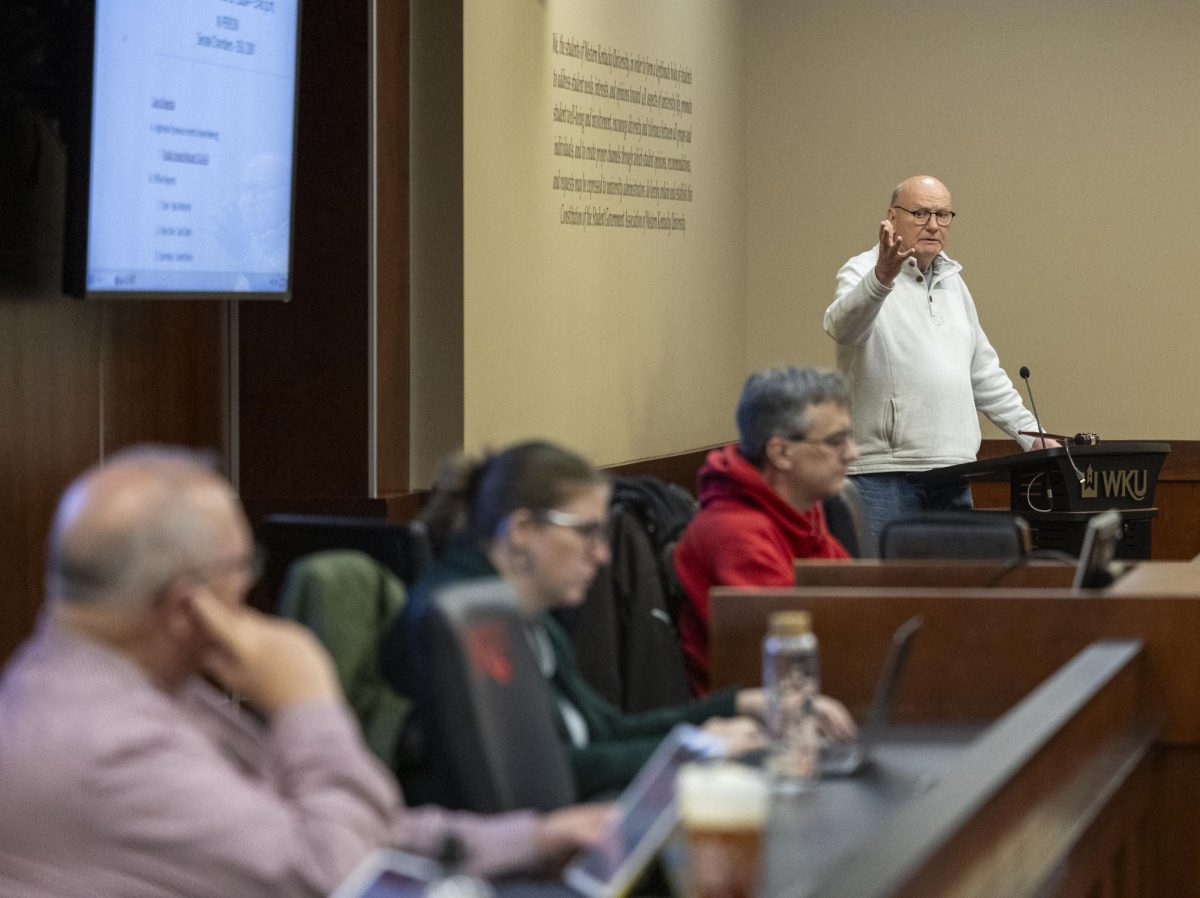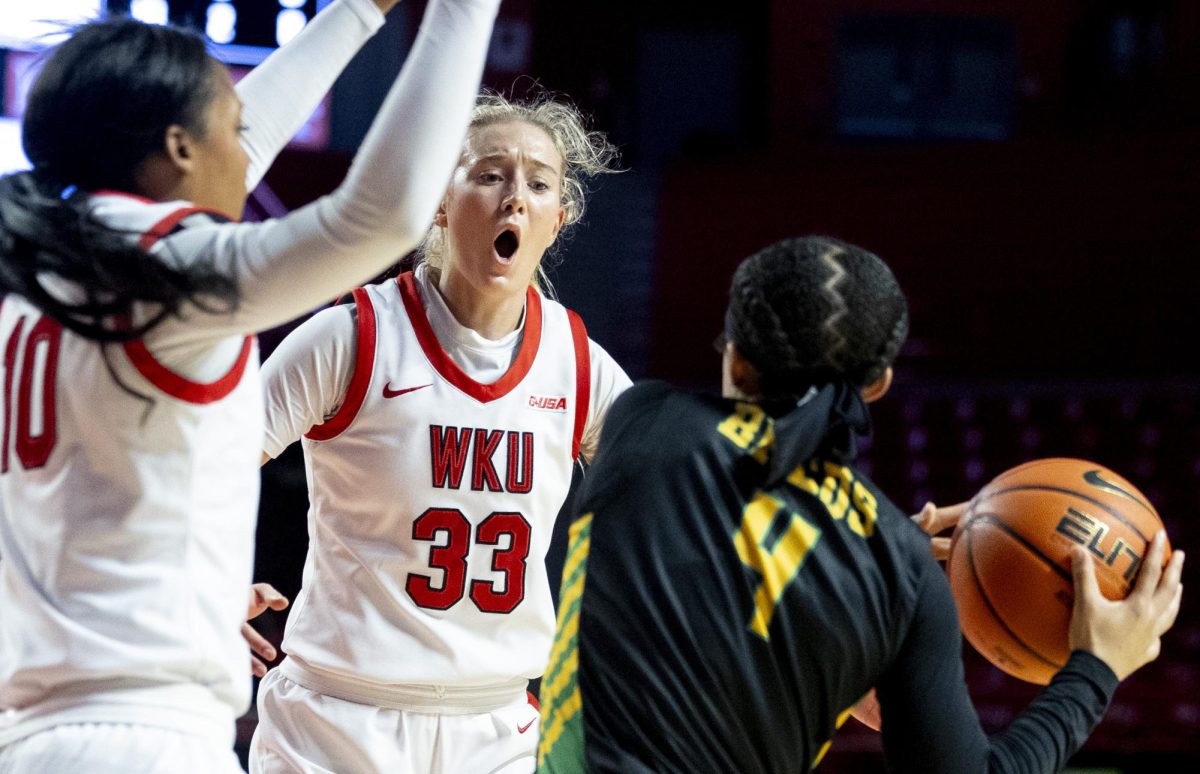Dual credit enrollment continues to rise
February 23, 2017
The number of students enrolled at WKU with dual credit status continues to rise as the number of students without dual credit status continues to drop, according to the WKU enrollment office.
The dual credit program is defined as a partnership between WKU’s Division of Extended Learning and Outreach (DELO) and area high schools to offer qualified students the opportunity to earn college credits as part of their high school curriculum.
Dual credit programs are becoming increasingly more popular across the country as students try to get a jump start on their college careers, according to multiple reports. In Fall 2015, 1,859 students were enrolled in dual credit courses at WKU according to WKU Enrollment. In Fall 2016, that number increased by nearly 500 with 2,348 students enrolled in dual credit courses.
Brian Meredith, chief enrollment and graduation officer at, said the program is a great recruitment tool.
“It lets a high school student get a taste for college courses and get a leg up on their freshman year,” he said.
Meredith said the program helps students come in feeling more comfortable and confident. Not only does it offer a more dynamic enrollment structure for the university, it helps with retention as well, he added.
“The state of Kentucky and WKU both benefit from a thriving dual credit program,” Meredith said. “It’s all about the students here, with anything we do, such as dual credit, that sets students up for the long haul.”
Sharon Hunter, director of strategic enrollment management and retention support, said the program aids the university’s regional stewardship, partnering with 45 high schools across the state.
Hunter said the dual credit program tries to tailor to each high school’s needs in regards to specific courses and professors. Courses offered are generally colonnade courses or other general education requirements.
“We try to look at everything we do from a student’s perspective,” Hunter said.
Hunter explained students who come in with dual credit status are typically more focused in their degree attainment, graduating from WKU in 4.1 years on average. Students entering WKU as freshmen with nine or more credit hours from dual credit enrollment, holding a 3.0 GPA, had a retention rate of over 90 percent.
Hunter said the marketing program at WKU has been heavily involved with the program as well. Guest speakers from WKU visit dual credit classes at participating high schools in the area to discuss coming here when they graduate, Hunter said. In addition, there are special tours specifically for dual credit students, as well as letters and other communication acknowledging their achievements in involvement with the university.
“They are WKU students while they’re in the program,” Hunter said. “Everything we do is about building a relationship.”
Dewayne Neeley, program director of Dual Credit, said the program understands not every student who takes part will attend WKU. Neeley said giving students their own ID card helps them feel like they are a part of the WKU community, lifting some of the weight and stress of college away.
“We want the students here,” Neeley said. “And we want them to know that we want them.”
Neeley said Dual Credit is a revenue generating detail for the university. The program pays for its own teachers and resources, while profits generated return to the university. In regards to the concurrent shifts in dual credit enrollment and non-dual credit, Neeley said he believes the benefits outweigh any negatives
“It’s clear our tuition is significantly lower than a traditional student’s would be,” Neeley said. “I believe our division, our provost and our president support dual credit and our recruitment of potential students, seeing the reward worth the risk of losing possible revenue.”
Reporter, Casey McCarthy can be reached at 270-745-6011 and [email protected].










